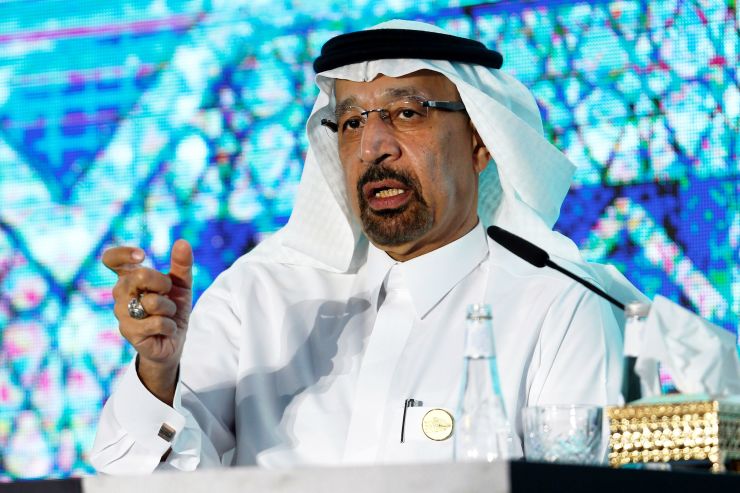
Saudi Arabia is seeking to attract 1.6 trillion riyals (nearly $429 billion) in private sector investment over the next 10 years for a landmark infrastructure and industrial program as part of its economic diversification campaign, Energy Minister Khalid al-Falih announced Saturday.
The plan aims to channel investments through the National Industrial Development and Logistics Program, which was established under Saudi Crown Prince Mohammed bin Salman’s Vision 2030 program. That sweeping initiative is dedicated to diversifying the kingdom’s economy away from oil reliance and creating private sector jobs for Saudi nationals.
A more detailed announcement will come Monday, which al-Falih said will reveal projects worth 70 billion riyals in the energy, mining, industry and logistics sectors. He described those projects as “ready for negotiations” and added that $50 billion in further projects related to the military, chemicals and small businesses would be announced at a later, though unspecified, date.
The country’s transport minister said the program will include 60 logistics initiatives including five new airports and 200 kilometers (124 miles) of railroads.
“It is quite ambitious but it is over a 10-year period so we have the time to do it,” al-Falih told a media conference.
The government will seek both domestic and foreign investment, the minister added. He said he expected a “huge contribution” from the private sector internationally but that authorities “would leave the bigger share for the Saudi private sector.”
Private sector headwinds
Saudi Arabia’s economy shrank for the first time in nearly a decade last year as headwinds batter its private sector. Businesses have struggled to deal with higher electricity and fuel prices and a 5 percent value-added tax (VAT) introduced at the start of the year. Unemployment, hovering just over 12 percent as of last summer, is at its highest level in a decade. The kingdom’s budget for 2019 is its largest ever as the government increases spending to boost growth amid lower oil prices.
Foreign direct investment (FDI) will be pivotal to realizing the crown prince’s Vision 2030 ambitions, economists say. But it’s been falling steadily since 2008— that year saw a high of $39.5 billion in FDI, dropping nearly every year and chalking a mere $1.4 billion in 2017, according to the UN. Obstacles remain in the form of skills shortages and lower oil prices, as well as growing international concern over the unpredictability and repressive tactics of the kingdom’s powerful young crown prince, Mohammed bin Salman.
Still, with a booming youth population and access to a massive regional market, numerous international investors — including BlackRock’s Larry Fink and the Blackstone Group’s Stephen Schwarzman, among others — remain committed to the kingdom and say they see significant long-term potential.
























